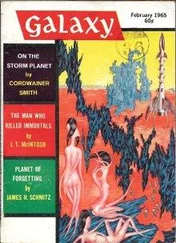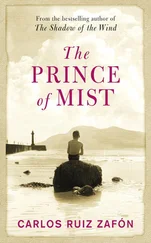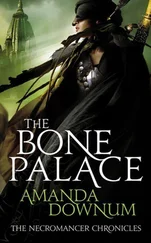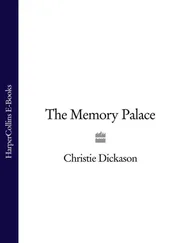Carlos Zafon - The Midnight Palace
Здесь есть возможность читать онлайн «Carlos Zafon - The Midnight Palace» весь текст электронной книги совершенно бесплатно (целиком полную версию без сокращений). В некоторых случаях можно слушать аудио, скачать через торрент в формате fb2 и присутствует краткое содержание. Жанр: Триллер, на английском языке. Описание произведения, (предисловие) а так же отзывы посетителей доступны на портале библиотеки ЛибКат.
- Название:The Midnight Palace
- Автор:
- Жанр:
- Год:неизвестен
- ISBN:нет данных
- Рейтинг книги:4 / 5. Голосов: 1
-
Избранное:Добавить в избранное
- Отзывы:
-
Ваша оценка:
- 80
- 1
- 2
- 3
- 4
- 5
The Midnight Palace: краткое содержание, описание и аннотация
Предлагаем к чтению аннотацию, описание, краткое содержание или предисловие (зависит от того, что написал сам автор книги «The Midnight Palace»). Если вы не нашли необходимую информацию о книге — напишите в комментариях, мы постараемся отыскать её.
The Midnight Palace — читать онлайн бесплатно полную книгу (весь текст) целиком
Ниже представлен текст книги, разбитый по страницам. Система сохранения места последней прочитанной страницы, позволяет с удобством читать онлайн бесплатно книгу «The Midnight Palace», без необходимости каждый раз заново искать на чём Вы остановились. Поставьте закладку, и сможете в любой момент перейти на страницу, на которой закончили чтение.
Интервал:
Закладка:
Aryami Bose
A knock on the door interrupted his reading. Carter removed his spectacles, carefully folded the letter and placed it in the drawer of his desk, which he then locked.
‘Come in,’ he said.
Vendela, the head nurse of St Patrick’s, put her head round the door; as usual her expression was stern and efficient. She didn’t seem to be the bearer of good news.
‘There’s a gentleman downstairs who wishes to speak to you,’ she said briefly.
Carter frowned.
‘What about?’
‘He wouldn’t give any details.’ Her tone seemed to imply that any such details were bound to be vaguely suspicious.
Vendela hesitated, then stepped into the office and closed the door behind her.
‘I think it’s about the baby,’ the nurse said anxiously. ‘I didn’t tell him anything.’
‘Have you spoken to anyone else?’ Carter enquired.
Vendela shook her head. He gave her a nod and put the key of the desk in his trouser pocket.
‘I can tell him you’re not in,’ suggested Vendela.
For a moment Carter considered the option, but decided that if Vendela’s suspicions were correct – and they usually were – it would only reinforce the impression that St Patrick’s Orphanage had something to hide. That made up his mind.
‘No. I’ll receive him, Vendela. Ask him to come in and make sure none of the staff talk to him. Absolute secrecy on this matter. All right?’
‘Understood.’
Carter heard Vendela’s footsteps as she walked down the corridor. He wiped his glasses again. Outside the rain was hammering against the windowpanes once more.
The man wore a long cloak, and his head was wrapped in a turban, which was pinned with a dark brooch shaped like a snake. He had the affected manners of a prosperous North Calcutta merchant and his features seemed vaguely Hindu, although his skin was an unhealthy colour, as if it had never been touched by sunlight. The racial melting pot of Calcutta had filled its streets with a fusion of Bengalis, Armenians, Jews, Anglo-Saxons, Chinese, Muslims and numerous other groups who had come to the land of Kali in search of fortune or refuge. The man’s face could have belonged to any of those races, or to none.
Carter could sense the stranger’s eyes burning into his back, inspecting him carefully as he poured tea into two cups on the tray Vendela had provided.
‘Do sit down,’ said Carter to the man. ‘Sugar?’
‘I’ll take it the way you take it.’
The stranger’s voice betrayed no accent or emotion of any sort. Carter swallowed hard, then fixed a friendly smile on his lips and turned round to pass his visitor the cup. A gloved hand, with long fingers sharp as claws, closed round the scalding china without a moment’s hesitation. Carter sat down in his armchair and stirred sugar into his tea.
‘I’m sorry to bother you, Mr Carter. I suppose you must be very busy, so I’ll be brief.’
Carter gave a polite nod.
‘What is the reason for your visit, Mr …?’
‘My name is Jawahal, Mr Carter,’ the stranger explained. ‘I’ll be frank. My question may seem odd to you, but have you found a child, a baby, just a few days old, either last night or today?’
Carter frowned and did his best to look surprised. Nothing too obvious, but not too subtle either.
‘A baby? I’m not sure I understand …’
Jawahal smiled broadly.
‘I don’t know where to begin. You see, it’s rather an awkward story. I trust you’ll be discreet, Mr Carter.’
‘But of course, Mr Jawahal,’ replied Carter, taking a sip of his tea.
The man, who had not tasted his cup, relaxed and launched into his tale.
‘I own a large textile business in the north of the city,’ he began. ‘I am what might be described as comfortably off. There are those who would call me wealthy, and rightly so, I suppose. I’m responsible for a number of families and I’m privileged to be able to help them as much as I can.’
‘With things the way they are, we all need to do what we can,’ said Carter, his gaze fixed on those two dark inscrutable eyes.
‘Yes, of course,’ the stranger continued. ‘The matter that brings me to your worthy institution is a painful one, and I’d like to put an end to it as soon as possible. A week ago a young girl who works in one of my factories gave birth to a baby boy. It seems that the father of the child is an Anglo-Indian rogue who disappeared as soon as he heard of the girl’s pregnancy. I’m told that the girl’s family come from Delhi. They’re Muslim, very strict, and they were not aware of the situation.’
Carter nodded gravely.
‘A couple of days ago one of my foremen told me that, in a fit of madness, the girl fled from the house where she was living with some relatives. It seems she was intending to sell the child,’ Jawahal went on. ‘Don’t get me wrong. She’s a good girl, but she was under so much pressure that she became desperate. Which isn’t so surprising – this country is just as intolerant of human weakness as yours is.’
‘And you think the baby might be here, Mr Jahawal?’ asked Carter, trying to bring him back to the subject.
‘Jawahal,’ the visitor corrected him. ‘Let me explain. Once I became aware of the circumstances I felt responsible, in a way. After all, the girl worked for me. I combed the city with a couple of trusted foremen and discovered that she had sold the child to a loathsome criminal who sells babies to professional beggars – a phenomenon that nowadays is as common as it is deplorable. We found the man, but, for reasons that are now irrelevant, he managed to escape. This happened last night, near your orphanage. I have reason to believe that, fearing what might happen to him, he may have abandoned the baby nearby.’
‘I see,’ said Carter. ‘And have you informed the local authorities of this matter, Mr Jawahal? The trafficking of children is punished severely, as you must know.’
The stranger folded his hands together and gave a little sigh.
‘I was hoping to solve this problem without having to go to those lengths,’ he said. ‘If I did that, I would implicate the young girl, and the child would be left without a father or a mother.’
Carter sized up the stranger’s story, nodding slowly and repeatedly to show he understood although he didn’t believe a single word.
‘I’m sorry I can’t be of help to you, Mr Jawahal. Unfortunately we haven’t found a baby or heard of any child being found nearby,’ Carter explained. ‘Still, if you leave me your details I’ll get in touch if I hear anything, although I’m afraid I would have to inform the authorities if the baby was abandoned outside this orphanage. That’s the law, and I can’t ignore it.’
The man stared silently at Carter for a few seconds without blinking. Carter held his gaze and didn’t alter his expression, although he could feel his stomach shrinking and his pulse accelerating, as if he were facing a snake that was about to strike. Finally the stranger gave a pleasant smile and pointed in the direction of the Raj Bhawan, the palatial government building that rose in the distance.
‘You British are admirable observers of the law, which is to your credit. Wasn’t it Lord Wellesley who, in 1799, decided to move government headquarters to that magnificent site in order to lend its laws greater weight? Or was it in 1800?’
‘I’m afraid I’m not an expert on local history,’ Carter replied, disconcerted by the sudden twist Jawahal had given the conversation.
The visitor frowned, mutely signalling his disapproval of Carter’s confessed ignorance.
‘With only two hundred and fifty years to its name, Calcutta has so little history that the least we can do is learn about it, Mr Carter. But, returning to the subject, I’d say it was in 1799. Do you know why the move was made? Wellesley, the governor general, said that India must be ruled from a palace and not from an accountants’ office; with the ideas of a prince, not those of a spice trader. Quite a vision, I’d say.’
Читать дальшеИнтервал:
Закладка:
Похожие книги на «The Midnight Palace»
Представляем Вашему вниманию похожие книги на «The Midnight Palace» списком для выбора. Мы отобрали схожую по названию и смыслу литературу в надежде предоставить читателям больше вариантов отыскать новые, интересные, ещё непрочитанные произведения.
Обсуждение, отзывы о книге «The Midnight Palace» и просто собственные мнения читателей. Оставьте ваши комментарии, напишите, что Вы думаете о произведении, его смысле или главных героях. Укажите что конкретно понравилось, а что нет, и почему Вы так считаете.












